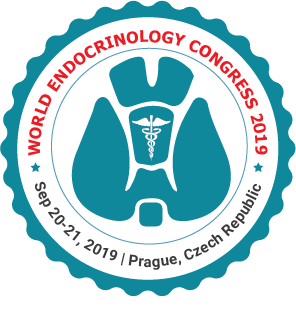
Kamila Szymanska
Medical University of Lublin, Poland
Title: Molecular characterization of three novel mutations in the luteinizing hormone/choriogonadotropin receptor gene (LHCGR)
Biography
Biography: Kamila Szymanska
Abstract
Three novel compound heterozygous mutations in LHCGR gene were identified in male patient with disorder of sex development (DSD). Two of these mutations, p.L16Q missense mutation and a deletion p.K12_L15del were of paternal origin, whereas the third of the mutations was a duplication p.L10_Q17dup of maternal origin. In order to understand the effect of these mutations on the phenotype observed in the patient, a number of molecular studies were carried out. First, we separated the missense mutation from p.K12_L15del and p.L10_Q17dup mutations, so we could study them separately. Analyses include the measurement of the membrane expression of the receptors, gene and protein expression, measurement of cAMP production and investigation of its cellular localization and transport. The results of the study revealed that the surface expression of mutants was decreased as compared to the WT LHCGR. Confocal microscopy showed intracellular expression of p.L10_Q17dup and p.L16Q mutations, whereas the intracellular expression of p.K12_L15del was negligible. The cAMP production was significantly lower in the case of p.L10_Q17dup mutant as compared to the WT LHCGR stimulation. The cAMP production of p.L16Q was 2.4 times lower, whereas p.K12_L15del did not show any response upon stimulation. Furthermore, both mRNA and protein expression of all three mutant receptors was decreased. We present here three novel mutations that lead to complete inactivation of LHCGR. Duplication mutant is most likely being degraded within the endoplasmic reticulum, p.K12_L15del results in mRNA degradation, whereas the expression of p.L16Q receptor is associated with decreased membrane expression of the receptor

